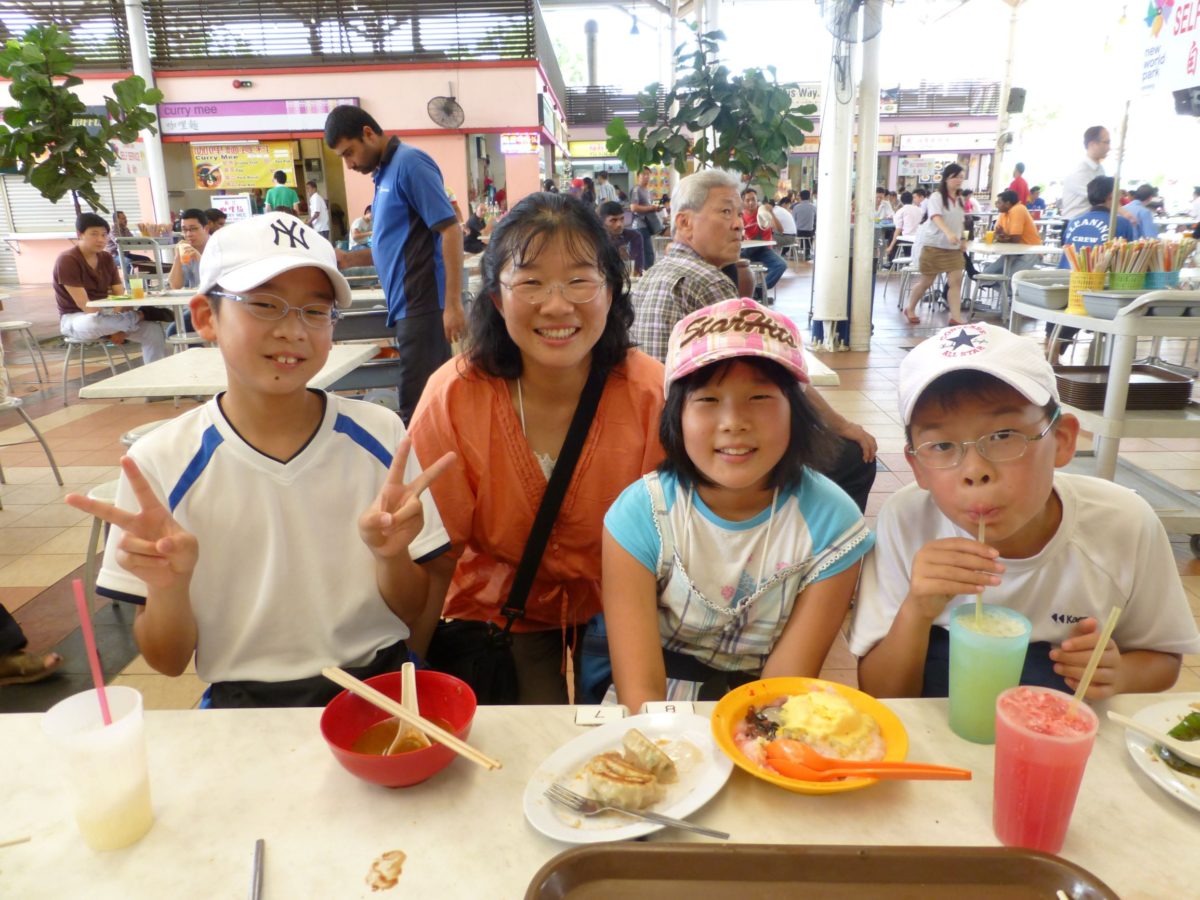On March 12, the day after the earthquake, after an anxious sleepless night, I woke up at 5:30 a.m. I tried giving my mother a phone call and it connected unexpectedly. I didn’t want to worry my 79-year-old mom, so I just told her that everyone was okay and we had no damage, I said goodbye and hung up the phone.
I turned on the radio and heard another big earthquake happened that morning in Nagano, central Japan. They said it has nothing to do with the earthquake that hit the east-north Japan the previous day, but I felt like the globe was shifting or changing drastically and that terrible events would continue to happen more in Japan. I was terrified and shivered in fear.
I also had heard that hundreds of dead bodies of Tsunami victims were found in Namie Town, our neighboring town, and thousands in Miyagi prefecture, the north prefecture of Fukushima. The radio broadcasted the same, uncertain news over and over again because nobody knew the full extent of the damage from the earthquake, it was extremely frustrating.
That day was the monthly scheduled visiting day that my ex had with my kids. He came to our place just before 8:00 a.m. as he promised me the previous night.
Usually, my ex took my kids somewhere to entertain them like Toys R Us, a shopping mall, a second hand shop, or a restaurant, but he decided to stay home with us that day. He said that we should check where the town distributed water or where the nearest evacuation shelter was, so we went outside to find it out.
It was a bright sunny, beautiful mid-March Saturday morning and I felt the fresh air on my face. It was warm. The five of us were walking outside, and I was thinking that we looked like a nice family and it was kind of funny because I had never walked with my ex husband after the divorce till then. I had no work scheduled on the day, so I was relaxed and despite some small aftershoks, it was a peaceful morning.
We walked to the Kawamata Minami primary school which was a 10 minute walk from my place. There was a Social Welfare Association building next to the school and Government personnel were busy working there. I asked them about water distribution places and evacuation shelters. They told me that we can get water in the municipal building downtown, and also that all the schools in town had turned into shelters for refugees from other neighboring towns, Namie, Minami Soma, and Futaba, because of the evacuation order. I thought the evacuation order was from the tsunami at the time, but it was actually because of the radiation from the Fukushima Daiichi nuclear power plant. Futaba town moved their municipality functions to one of the Kawamata schools. I saw a few people hanging a sign to lead refugees to the school. I was shocked and surprised at the large impact of the earthquake. I felt sorry for all the refugees that I saw, but I didn’t realize at the time that it was also my problem and that I was about to become a refugee as well.
The radio repeatedly broadcasted that the Fukushima Daiichi plant’s coolant system wasn’t working and the nuclear fuel was in unstable condition, but there was no radiation leakage. But that was a lie.
The Asahi Newspaper revealed in October in 2011 that the Government detected an extremely high, 15 micro Sv/h radiation (normally 0.02 micro Sv/h) at 9 a.m. on March 12 in the Namie Town, just 15 km from my place. The Government even detected Radioactive tellurium which was emitted only when the nuclear fuel temperature reached above 1000 degrees celsius. TEPCO, the electric company, started venting radioactive air to release the pressure in the nuclear fuel containers to prevent the hydrogen-air chemical explosion at 10:17 a.m. on March 12, but tellurium was detected 30 km away from the plant one hour before the vent. All those things meant that the nuclear fuel had melted down way earlier than we were told.
We were walking ignorantly and unknowingly into a highly radioactive plume without a mask. No one knew how serious the situation was at the time, except TEPCO and the Government. Radiation has no smell, or no color, I was shocked and terrified when I found out that we were exposed without any protection, to a radioactive plume that was 750 times higher than normal.
After coming back home and listening to the radio news about Fukushima Daiichi plant, my ex said, “Japan is a country of earthquakes, so they shouldn’t have built so many nuclear power plants in Japan. I think it should be okay here, but we should measure how far the Fukushima power plant is.” I was a little surprised to hear those words because usually my ex was far from critical about the Government policies. He asked my kids to bring a geography textbook they were using at school, found our local map, measured with a plastic scale, and calculated that our place was 42 km away from the Fukushima nuclear plant.
I felt very uneasy listening to the nuclear plant’s news. I tried not to take it too seriously, until the Government would order the evacuation of our town. I wanted to believe that everything would be okay.
